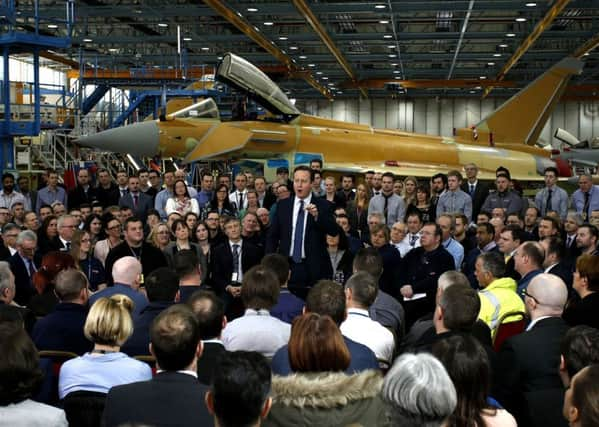PM defends denying resort grant pay-out


On a visit to BAE Systems at Warton, on the campaign trail for the European Union referendum, Mr Cameron denied councils in the south of England were benefiting, while those in the north were missing out.
“I don’t think that is the case actually,” he said after being asked if the share out of cash flew in the face of the Government’s much publicised Northern Powerhouse plan.
Advertisement
Hide AdAdvertisement
Hide Ad“If you look at what’s happening to spending power for the local council (Lancashire) this year, it is actually a relatively small decline and less than the national average.
“So we think that what we are doing is providing councils with new freedoms to raise and spend money. They are going to have, by the end of this Parliament, the ability to keep and spend the business rate money which I think is a really big change for local government.”
The Premier was at BAE yesterday banging the drum for the ‘In’ campaign ahead of the June 23 referendum.
Speaking in the hangar where the Typhoon warplane is built in collaboration with other European nations, he said: “I passionately believe that from all I have seen as your Prime Minister, the right choice is to stay in a reformed European Union. It is right for Britain, right for businesses like BAE Systems and, I believe, right for our jobs, our future and, crucially, our children’s future.”
Advertisement
Hide AdAdvertisement
Hide AdLater, he told The Gazette: “We know that on June 24, after a referendum, we have the same access to the single market, we have the same co-operation with our European partners, the same ability to trade and travel across Europe that means so much for workers here in BAE Systems who often have to go to work in Munich or elsewhere.
“But what we don’t know is, if we leave, what happens next?
“Do we have access to that single market, do we see economic problems and dislocation? How long does it take to put in place trade deals with the rest of the world?”